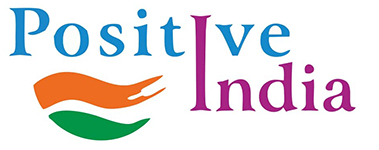
Positive India:Kanak Tiwari:
The Constitution of India is a collective work of virtually immortal authorship of around 300 intellectuals par excellence who were legal luminaries, administrators and representatives of the freedom movement including of all shades, provinces and groups. They did anticipate that the country some day may be facing a great economic crisis. The condition of the common man in terms of standard livelihood is deteriorating gradually while otherwise he is working hard to cater to the needs of his family. Due to globalization having not only intruded into Indian political and economic system but has now enveloped every government activity to demonstrate that privatization has taken the lead. After independence the first prime minster Jawahar Lal Nehru introduced a mixed economy with due cognizance of upper hand of the public sector. He left enough room for the private sector in some such industries which the government will not like to undertake to establish. The policy was broadly followed up to the times of prime minister Indira Gandhi.

It is to the credit of Nehru that he abolished the zamindari system which held hundreds and thousands of acres of land in single proprietorship. Marching ahead Indira Gandhi abolished the feudal system and their titles to march towards socialism to create an egalitarian society. However thereafter the pace of public sector could not speed up during the regime of the Janata Party as also of Rajiv Gandhi but the private players could not take the lead in the growing economy of the country.

After 1991 during the regime of P.V. Narasimha Rao as prime minister the country faced very heavy economic crisis. The ruling Congress therefore depended upon the advices and wisdom of its finance minister Dr. Manmohan Singh who advocated for acceleration of the role of private industries in preference to the already suffering public sector. The Manmohan formula was termed as massive economic reforms in the financial and economic sector which not only invited the indigenous businessmen but also invited collaboration and assistance from foreign countries and particularly America and the European countries. It is strange, neglected and forgotten provision of the Indian Constitution vide article 39 (b) which reads that “the ownership and control of the material resources of the community are so distributed as best to subserve the common good, “which ought to have attracted the attention of the Indian parliament and the government while approving of the doctrine propounded by Dr. Manmohan Singh of economic liberalization.
Upon turning the pages of history a brilliant speech by Prof. K.T. Shah as if made some prophetic statements the kind of agony the country is facing today in its realization. Against the aforesaid finally approved of provision in article 39 (b) Shah very emphatically suggested that it should be substituted in accordance with his amendment which reads as follows “(ii) that the ownership, control and management of the natural resources of the country in the shape of mines and mineral wealth, forests, rivers and flowing waters as well as in the shape of the seas along the coast of the country shall be vested in and belong to the country collectively and shall be exploited and developed on behalf of the community by the State as represented by the Central or Provincial Governments or local governing authority or statutory corporation as may be provided for in each case by Act of Parliament.”
Shah thereafter emphatically stated that they are gifts of nature. They are the initial endowment which each country has in greater or less measure; and in mere equity, they should belong to all people collectively. And if they are to be developed, they should be developed also by, for, and on behalf of the community collectively. The creation or even the presence of vested interests, of private monopolies, of those who seek only a profit for themselves, however useful, important, or necessary the production of such natural resources may be for the welfare of the community, is an offence in my opinion against the community, against the long-range interests or the country as a whole, against the urban generations, that those of us who are steeped to the hilt, as it were, in ideals of private property and the profit motive, do not seem to realize to the fullest.
It is strange that Dr. Ambedkar while replying to the debate practically avoided considering the crucial objection raised by Shah which was the first and lone wise voice against any possible monopolistic takeover of such material resources of the community. It is really unintelligible if the constitution holds on one hand that the material resources belong to the community then why could the government either of the centre or of the state not come forward to take over to its possession exploitation and also distribution under their command so that in the net result the public exchequer shall be enriched. No other treasury bench member as on 22nd November 1948 when the government of Jawaharlal Nehru was already in office came to the rescue of the country and supported the socialistic contentions of K.T. Shah. It proves that the constitution assembly members in their majority were unable to foresee or anticipate any such monopolistic disaster that was awaiting the country at least in 21st century.
Courtesy:Kanak Tiwari




